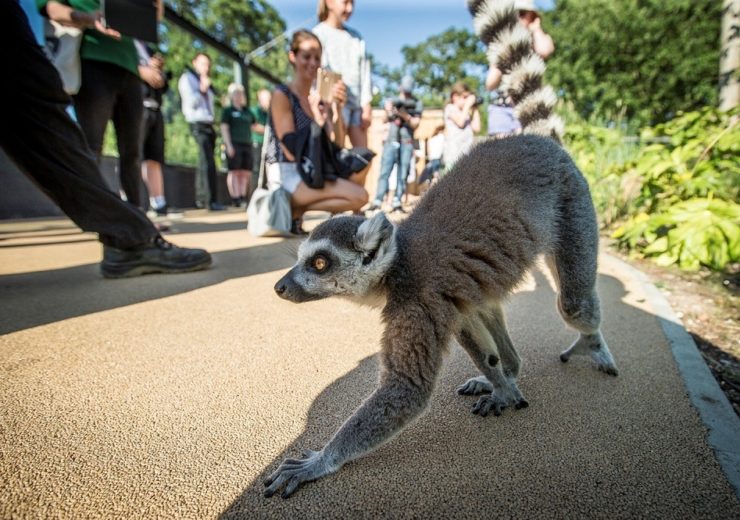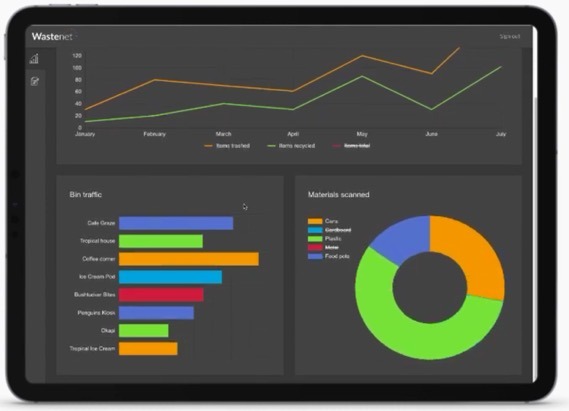Using an app called Wastenet, the IBM interns say the app will help people put their waste in the right bins, while making it easier for staff to manage the process

Lemur with guests at Marwell Zoo (Credit: Marwell Wildlife)
Students from tech giant the IBM Extreme Blue internship programme are testing a smart technology recycling app at Marwell Zoo in the south-west of England.
Working alongside officials from the facility, which welcomes more than half a million visitors each year, the interns developed a prototype called Wastenet, which allows staff to get an overview of recycling across the whole site.
Over the past couple of years, the UK government has been encouraging businesses such as Marwell – which is owned by Marwell Wildlife – to take action on recycling by imposing additional taxes on the amount of waste they send to landfill.
Marwell Wildlife’s head of sustainability Duncan East said: “We all know we should recycle.
“But with so many different schemes in different areas it’s not always easy to know what you can and can’t recycle when out for the day.
“Add the fact that children are often keen to see the next animal or get to a play area, then sorting picnic waste doesn’t always get the attention it needs.
“We’re very excited to be working with IBM to take the stress out of recycling and make it quick, easy and fun.”
What is the Wastenet recycling app IBM interns developed?
The Wastenet app uses a combination of IBM’s visual recognition, machine learning and cloud computing technology to create an innovative waste classification system, allowing it to become anyone’s “bin assistant”.
To use it, the zoo’s visitors hold up an item to a scanner by a recycling bin, or a camera on a mobile with the app installed, which then informs them in which bin it belongs.
University of Oxford materials science student Arthur Berkley said: “You’d think throwing rubbish in a bin would be easy.
“But when we studied how zoo visitors used the bins, we saw they got confused about what they can recycle.

“And if they throw stuff in the wrong bin, or if it’s soiled, then recycling companies can decide the whole binload is contaminated.”
University of Sheffield Robert Scowen computer science and AI student added: “We found that out for ourselves the hard way.
“We spent a grim day sorting through some of the binbags and saw what a mess people made of recycling – literally.”
The app employs machine learning to improve its efficiency with every use, gradually refining product classification for ever-greater accuracy.

University of Reading graphic communication and typography undergraduate Eden Sinclair, said: “We’ve created display dashboards to make it easy to understand.
“Marwell also want to display them in high-traffic areas around the zoo, such as cafes, to give visitors a snapshot of the impact of their waste habits.”
As part of IBM’s Extreme Blue scheme, students work at IBM’s software development lab in the Hampshire village of Hursley.
Four teams are given three months to design, build and test an innovative new product for one of the company’s clients.
King’s College London computer science student Kossaï Sbaï said: “Our internship is a great way to get real-world experience solving business problems.
“We’re given responsibility to do research, design a product, then develop and test it with a client.
“And we have IBM’s experts and technology available to help us at every stage.”
This is not the first time that the tech giant has teamed up with Marwell, with the company using technology to analyse data from sensors in the zoo’s enclosures, meaning staff can keep the animals safe while reducing the amount of energy used for heating.
